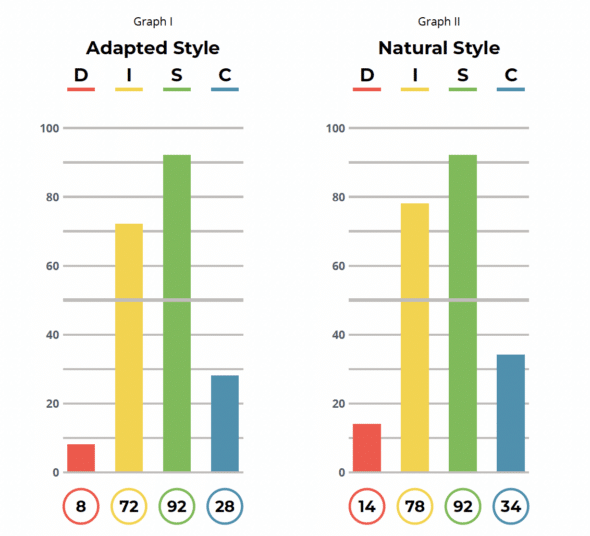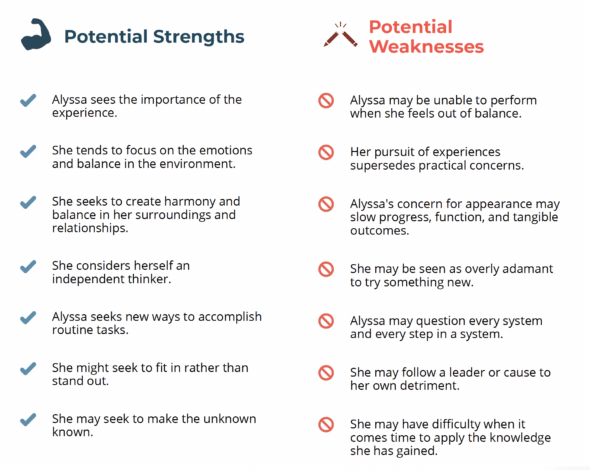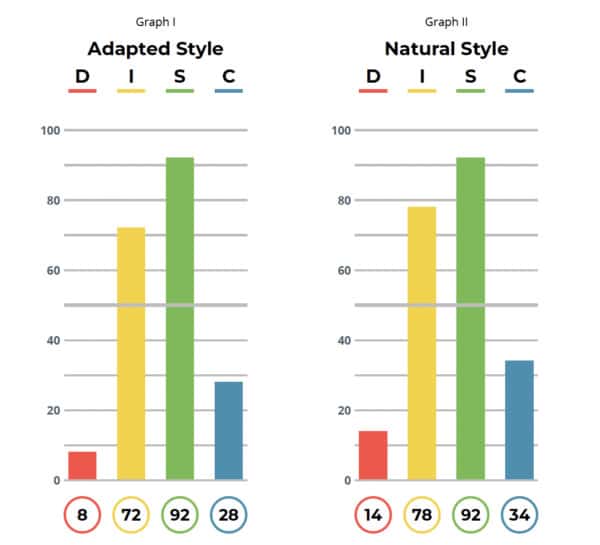Outside the classroom, many of us don’t find ourselves taking many assessments of our own volition, beyond “If you were a Disney character, who would you be?” or to gain a certification in our field. After my personal experience at Atomic Object taking personality assessments, I believe they’re an overlooked mechanism for improving our work. Personality assessments can provide invaluable self-awareness and insights into interpersonal dynamics. In turn, these can translate to personal growth and a more empathetic, effective team.
My Favorite Personality Assessment: The DISC
In particular, my team and I found the DISC Assessment to be incredibly valuable. The DISC model has been evolving for nearly a century, and the assessment to typify people and their behaviors has been used for at least half of that time. The assessment is designed to measure interpersonal behavior and classify the way people interact into four distinct personality styles. Those are: Dominance (D), Influence (I), Steadiness (S), and Conscientiousness (C). You can briefly summarize these styles.
(D) Dominance: direct, strong-willed, forceful
(I) Influence: interactive, sociable, talkative
(S) Steady: accommodating, considerate, patient
(C) Conscientiousness: private, reserved, analytical
After taking a survey to probe your tendencies in these four areas, your results will be plotted on a chart like the ones below. There is the Adapted Style, which is what we’re like when we adjust to external expectations, such as in the workplace. There’s also the Natural Style that we default to in our everyday lives.

My own DISC survey results.
It can be completed in just 15 minutes and provides a wealth of insight into our behaviors and how we might work better together. It helps to make sense of why our teams function the way we do.
Understanding Your DISC Profile
Per the results above, I’m classified as an i/S on the DISC scale, which indicates a blend of Influence and Steadiness traits. This means I tend to be sociable, lively, and friendly (I), while also considerate, patient, and soft-hearted (S). Beyond just adjectives that describe your personality, the results of your DISC are a resource that provides insights into your strengths, weaknesses, and motivators. It also describes nuances in your behavior that are challenging to self-identify.
For example, my report stated that I am too conservative and that I bide my time to avoid new things, which is largely true when I think about it, and a weakness I was never aware of before. I now pay attention to these weaknesses when I work, and I feel that this newfound ability to be in tune with my weaknesses empowers me to work to overcome them.

On the flip side, my report emphasized my ability to be a team player and avoid confrontation, validating my perception that these are my strengths. The DISC also ranks your top motivators. For example, I seek to create harmony in my environment through prioritizing experience, subjective viewpoints, and balance. Seeing your strengths, weaknesses, and motivators so clearly can help you hone in on them in your work. It can help to make sense of difficulties you’re facing or areas you excel at but don’t explicitly understand why. Or, it may key you into certain behaviors you didn’t even notice in the first place.
Incorporating the DISC into Team Dynamics
At Atomic Object, every Atom takes the DISC—we even have our results available for anyone in the company to view. The real value of using the DISC in the workplace is its ability to provide a more scientific view of the behaviors in your workplace, allowing you to consider team dynamics more objectively. Ever wonder why a colleague takes an entire day to decide what you believe is a 10-minute decision? Being exceptionally methodical and precise in their work and their decision-making could be their natural style of working.
You wouldn’t be surprised to find that their DISC results skew toward the “C” category – a type known for focusing on facts and logic and conducting thorough analyses before making decisions. Instead of feeling frustrated about our coworkers’ innate behaviors, we can figure out how to channel their traits productively and acknowledge the power of our differences. Someone high in Dominance (D) may excel in leadership and driving results, while those with an Influence (I) disposition could be outstanding communicators and motivators to others. Pinpointing team members’ strengths and leveraging them fosters a collaborative environment where everyone can shine.
One value of an entire team taking the DISC is that it creates a common language for describing workplace dynamics. With everyone on the same page about what the four personality types mean, the DISC equips teams with a common vocabulary to discuss personality traits and behaviors. This shared understanding facilitates more effective communication and teamwork, especially because we oftentimes don’t label behavior objectively. In my previous example, “methodical” is a neutral way to describe someone who some may see as “excessively slow.”
Go take a personality test!
Incorporating personality assessments like DISC into your workplace isn’t just about categorizing your coworkers; it’s about unlocking the potential for personal growth and enhanced team dynamics. By understanding your own DISC profile and those of your colleagues, you gain the tools to navigate workplace challenges with empathy and clarity. It’s a pathway to self-awareness, better collaboration, and personal and professional empowerment. So, whether you’re a “D,” “i,” “S,” “C,” or any combination of them, embrace the power of these assessments to drive positive change in your team and your career!
Other Personality Tests I’ve found valuable:

